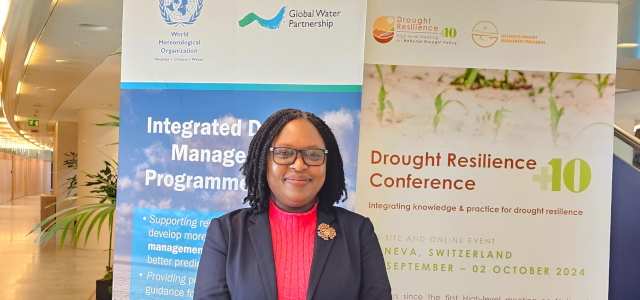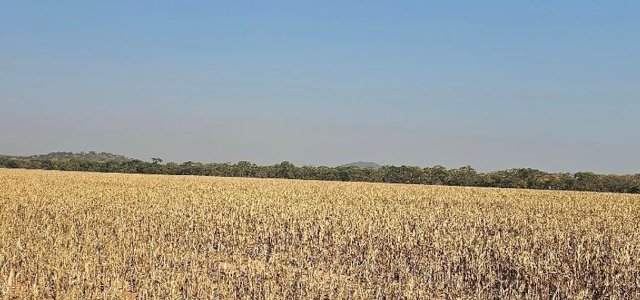GWPSA, in collaboration with the Food and Agriculture Organization (FAO), co-hosted a side event titled "Gender and Social Inclusion in Drought Management: Policy and Practice." The session explored the critical importance of addressing gender and social inclusion in drought policies and management, emphasizing practical steps to ensure that vulnerable and marginalised communities are empowered to take climate-related action.
Highlighting Gender Inequalities in Drought Management

In her presentation during the session, Dr. Nawa Mwale, Gender Advisor for GWPSA and Executive Secretary of GWP Zambia, commended countries such as Grenada, Guyana, Liberia, Montenegro, Nigeria, Somalia, Sri Lanka, Sudan, and Zambia for mainstreaming gender in their National Drought Plans.
"It is important to acknowledge that men and women experience the impacts of drought differently. Gender inequalities significantly reduce women’s ability to cope with drought, making it crucial for national drought plans to be gender-responsive," said Dr. Mwale.
She pointed out that the absence of specific indicators and targets for tracking gender interventions in drought management is a key gap in many national plans. Dr. Mwale emphasized that women are often viewed solely as victims rather than as agents of change who can actively contribute to drought resilience solutions.
Zambia’s Gender-Responsive National Drought Plan
In another presentation during a session on social inclusion and climate justice jointly organised by Global Water Partnership, International Water Management Institute, and the International Organization for Migration, Dr. Mwale cited Zambia’s 2018 National Drought Plan (NDP) as a model for integrating gender considerations into drought management. She explained that the NDP incorporates gender concerns into the roles, responsibilities, and activities of the National Disaster Management Committee and its sub-committees. Additionally, the plan addresses the needs and roles of youth and persons with disabilities, recognising their importance in building adaptive capacity.
Dr. Mwale pointed out that women’s adaptive capacity is often lower due to economic disadvantages, limited education, and a lack of access to critical resources. However, she emphasized that both men and women possess unique knowledge and skills that can contribute to adaptive solutions and enhance resilience in their communities. This holistic approach to gender inclusion, she noted, is crucial for developing effective and sustainable drought management strategies.
"National drought policies must be deliberate in mainstreaming gender equality and social inclusion. They should not merely categorise men and women as homogeneous groups but recognise diverse identities to ensure no one is left behind," Dr. Mwale added.
Way forward
The conference marked a significant step forward in advocating for the integration of gender and social inclusion in drought management, with experts emphasizing the need for deliberate and intentional approaches to address the diverse impacts of drought across all social groups.
As the world grapples with increasing climate variability, the lessons shared during the Drought Resilience +10 Conference will serve as a critical guide for countries seeking to strengthen their drought resilience while ensuring that vulnerable communities are not left behind.
